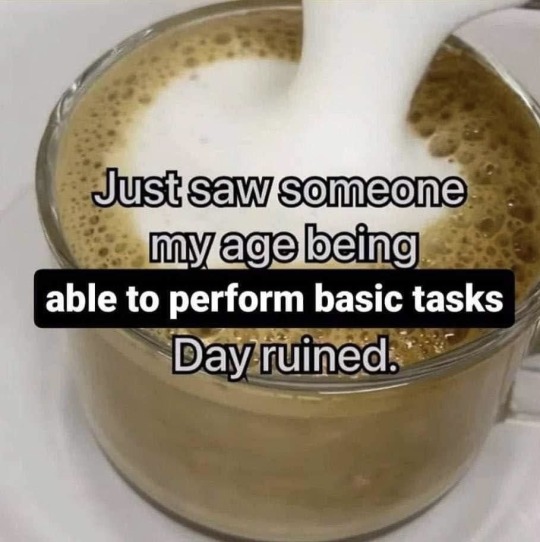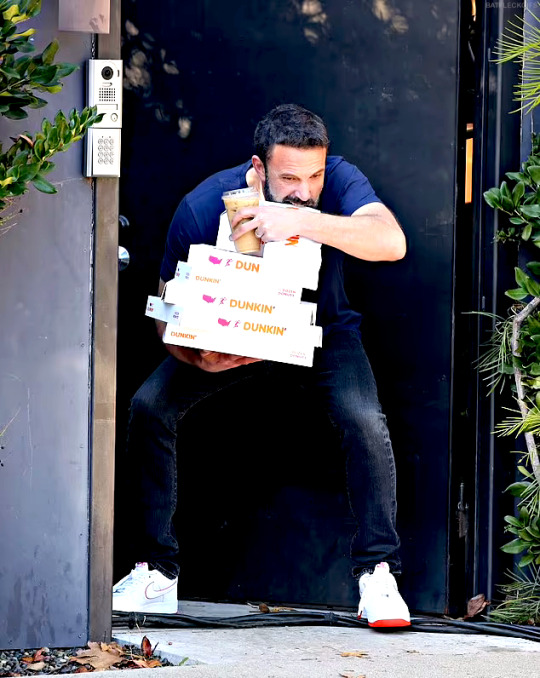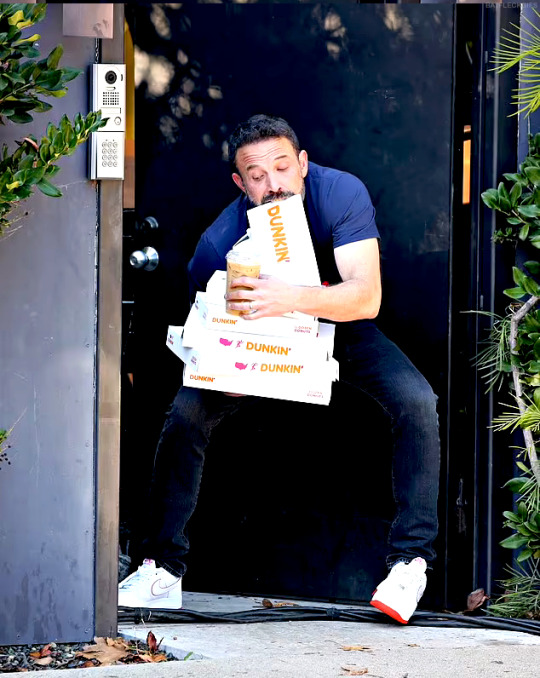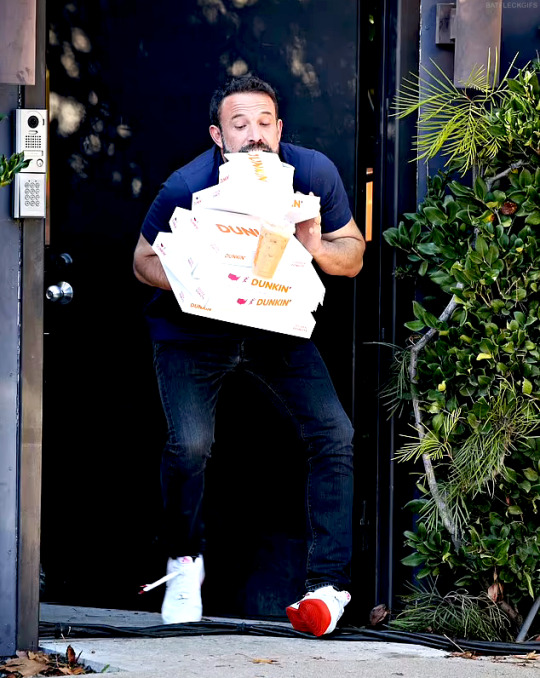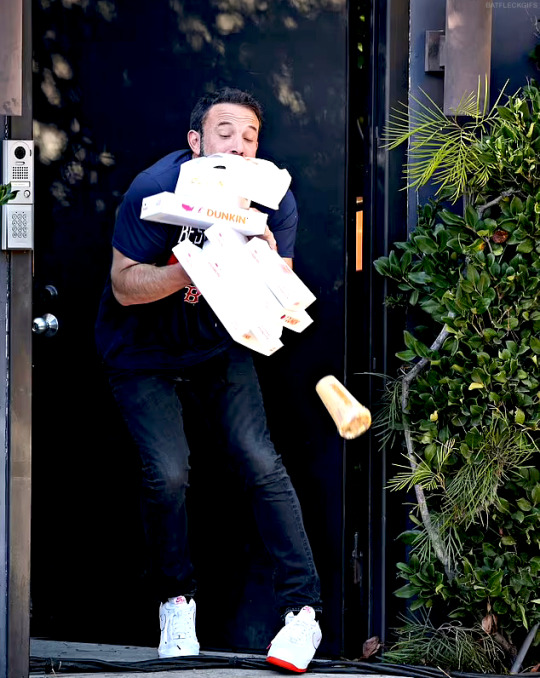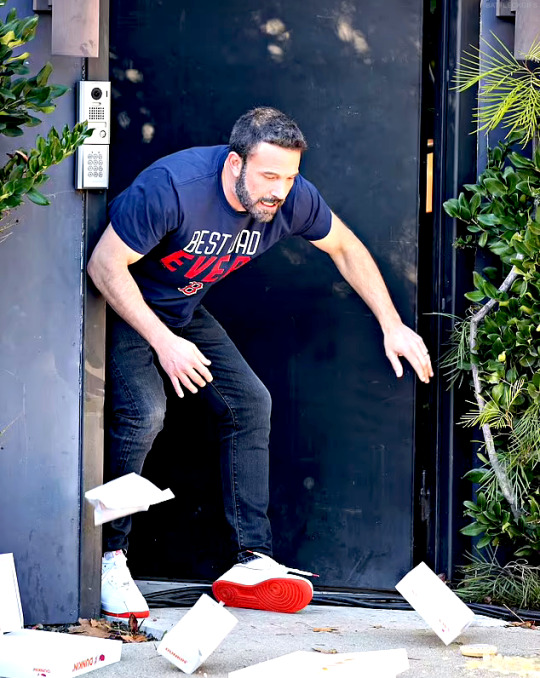Text
“Paul and I have been talking about Brian. Linda rejoins us with fresh drinks, starts to turn away. LINDA: Oh! PAUL: It’s me, I’m your husband, sit down. DANNY: Yeah, sit down, we’re talking about the movie The Hours and Times in which the John Lennon and Brian Epstein characters spend a weekend in Spain in 1963. And the premise is that Brian is in love with John and that they have sex. That’s implied, it’s not on screen or anything. PAUL: Well, I’m sure Brian was in love with John, I’m sure that’s absolutely right. I mean, everyone was in love with John; John was lovable, John was a very lovable guy. DANNY:That’s not exactly what this is about. PAUL: (to Linda) Hey, this is supposed to be your interview. LINDA: Carry on. PAUL: But this is relevant in a way. OK, Brian was a lovable guy. And John was sort of more, you know, very middle class, and Brian was middle class, and they could relate to each other. DANNY: As opposed to working class – John, I mean? PAUL: Yeah, as opposed to working class. So they would kind of know about this, what’s expected of them, a little above people, a little superior. Then Brian invited him to come away to Spain. A couple of the guys whom we knew were sort of gay, with a bit of money, were going to Spain. I think the rest of us were a little peeved not to be invited, because somebody was getting a free holiday here. DANNY: Did you think John was going to have a gay sexual experience, or might have? PAUL: No, no, no, it didn’t occur to us. And to this day I don’t know. Now the gay bit, you tell me what you’ve heard, because I don’t know anything. DANNY: It doesn’t matter what I’ve heard. I want to know now, if you think it’s possible that something happened between John and Brian? PAUL: It’s more than possible, it’s more than possible, but, as I’ve said, ‘Come on, this is the fucking Beatles, everyone wants to imagine everything.’ I never got any clue of anything but total hetero. If I saw John doing something, it would be ass bobbing up and down, fucking some chick. There were no real clues whatsoever of John’s possible gay encounter with Brian. There were other clues, there were what straight people might call sexual deviancies. I wouldn’t call them that. I’d call it a bit of a lad on the loose. You’ve got to remember, we all got out of home, we got out on the loose, we got into the Reeperbahn, we got into London, it was all kind of there, and all possible.”
— Paul McCartney and Linda McCartney, interview w/ Danny Fields, c/o Danny Fields, Linda McCartney: A Portrait. (2001)
865 notes
·
View notes
Photo
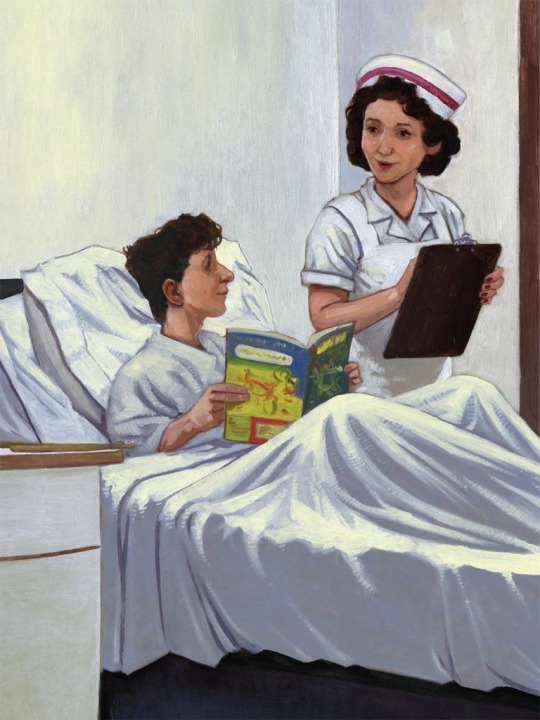

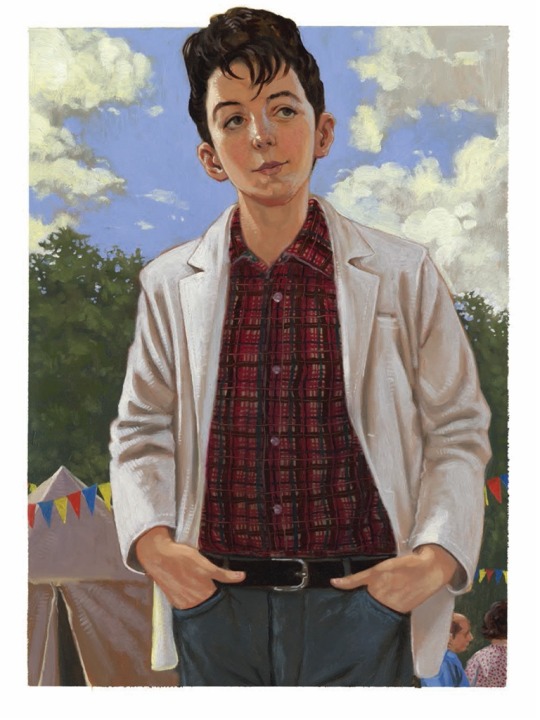

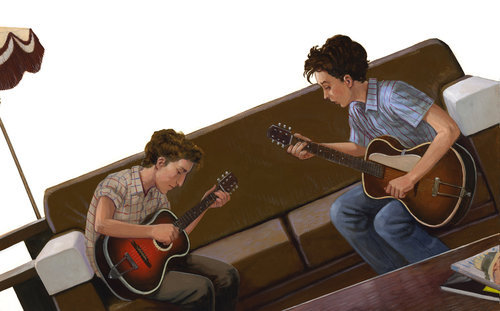
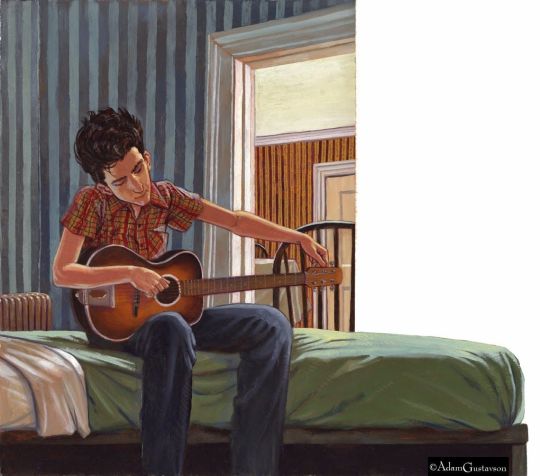
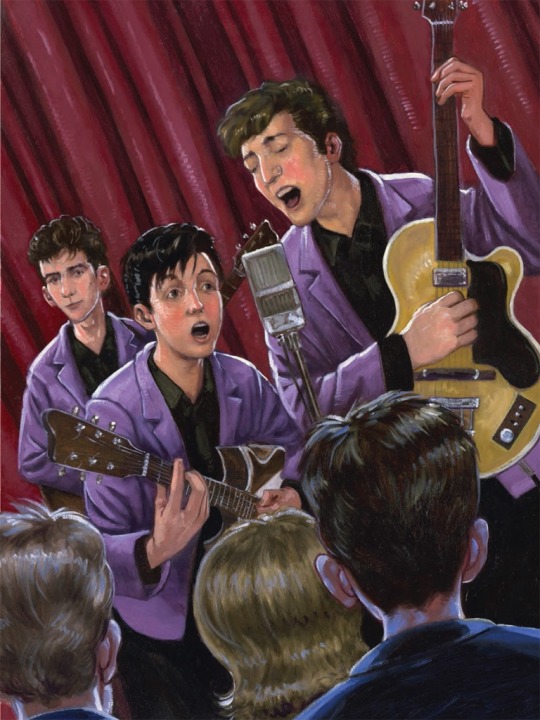
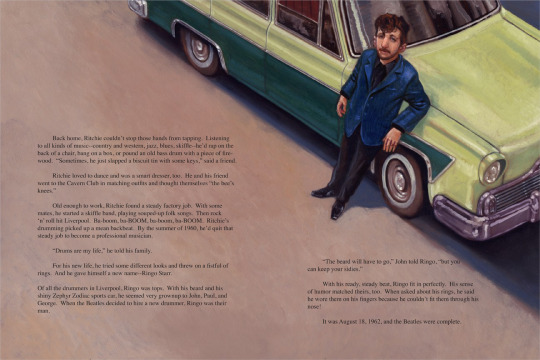
Adam Gustavson’s Artwork for Susanna Reich‘s ‘Fab Four Friends: The Boys Who Became The Beatles’
“It’s worth mentioning that visual documentation on the Beatles is abundant. So, yes, that is Paul McCartney’s mum’s couch, yes, the anti-macassars were white, and yes, she really had that lamp. In other cases, anecdotal evidence is necessary to fill in gaps or inconsistencies. For example, the red dyes used in the 1940s and ‘50s on budget model guitar finishes were often fugitive, causing what was once a warm sunburst finish to fade into an almost greenish hue when viewed today. The goal of this minutia level research is to seem invisible, to hopefully give a veneer of plausibility to imagined scenes in a way that doesn’t seem self conscious or gratuitous.” Adam Gustavson
966 notes
·
View notes
Text
“When Sam Taylor did her film [Nowhere Boy], she brought the script round and we chatted about it. She’s a very good friend. And I said, “Well, Sam, that’s not really true. John didn’t really ride on the top of the double-decker bus.” She said, “No, but it’s a great scene.” I mean, the character of Mimi, John’s aunt, I said to her, “She really wasn’t how she’s written in the script. She’s written as a very vitriolic, mean old bitch, and she wasn’t at all.” She was just some woman who was given charge of the responsibility of bringing up John Lennon, and it was not an easy job, you know? She was trying her best. She was kind of strict, but it was with a twinkle in her eye. I said, “I used to go around there and write with John, and she was okay. You’ve got to change that.” Some of the things she did change, but in the end we agreed that this is not a documentary, this is a film, and so she made inferences that weren’t there. Like, this whole idea of the first song we recorded, “In Spite of All the Danger,” being John’s ode to his mother. That’s not true, but in a film, it works better. I remember the session, and I remember all the circumstances around that – and we wrote it together. It did not appear to be an angst-ridden ode. We were copying American stuff that we were listening to. American songs were about danger, that’s why we put it in. But, for Sam, it worked much better in the film as an angst-ridden ballad.”
— Paul McCartney on the movie Nowhere Boy, interview for Rolling Stone (via mclennonbook)
#prev: i agree#nowhere boy was really my introduction to john's story when i first became interested in them#and though there are many things that are wrong i still thing the movie captured his personality and motivations quite well#it does a good job of showing who john was (and part of why he was that way) to somebody who only knows little about him#nowhere boy
536 notes
·
View notes
Text

In 1980 Peter Brown, a former assistant to Brian Epstein who later ran Apple Corps, managed the Beatles and was best man at John Lennon and Yoko Ono’s wedding, started work on the definitive account of the Beatles. With the American author Steven Gaines, he spoke to the three surviving band members alongside wives, girlfriends, managers, friends, hangers-on and everyone else in the Fabs’ universe. The book promised to be the last word in Beatles history. Then in 1983 The Love You Make was published, and all hell broke loose.
“They were furious,” recalls Gaines, 78, still sounding pained at the memory. “Paul and Linda tore the book apart and burned it in the fireplace, page by page. There was an omerta, a code of silence around the Beatles, and they didn’t think anyone would come forward to tell the truth. But Queenie, Brian Epstein’s mother, told us above all else to be honest.”
“Even she didn’t think we would be quite so honest,” adds Brown, 87, his upper-crust English tones still in place after five decades in New York.
Why did The Love You Make, retitled by Beatles fans as The Muck You Rake, incite such strong feelings? The suggestion of an affair between Lennon and Epstein on a holiday to Barcelona in April 1963, only three weeks after the birth of Lennon’s son Julian, had something to do with it, but more significantly it was taken as a betrayal by a trusted insider. Brown and Gaines locked the recordings in a bank vault and never looked at them again — until now.
“Very good question,” Brown says, when I ask why he and Gaines have decided to publish All You Need Is Love, an oral history made up of the interview transcripts from which The Love You Make was drawn. He is speaking from the Manhattan apartment on Central Park West where he has lived since 1971. “When [Peter Jackson’s documentary] Get Back came out, a journalist from The New York Times wanted me to talk. I told him I hadn’t talked about the Beatles since the book was published and suggested he go to someone else. He said, ‘There isn’t anyone else. Paul, Ringo and you are the only ones left.’ And I thought, do I have a responsibility to clear it all up, once and for all?”
After the death of Epstein in 1967, Brown assumed the day-to-day responsibilities of managing the Beatles and Apple Corps. He had on his desk a red telephone whose number was known only to the four Beatles. Unsurprisingly, given his insider status, the interviews make for fascinating reading. Paul McCartney, yet to be asked the same questions about the Beatles thousands of times over, is remarkably unguarded. Asked by Gaines if the other Beatles were anti-Linda, he replies: “I should think so. Like we were anti-Yoko.” On the image the Fabs had for being good boys on tour, he says, “You are kidding,” before going on to reference a notorious incident involving members of Led Zeppelin, a groupie and a mud shark, concluding: “No, not in the least bit celibate. We just didn’t do it with fish.”
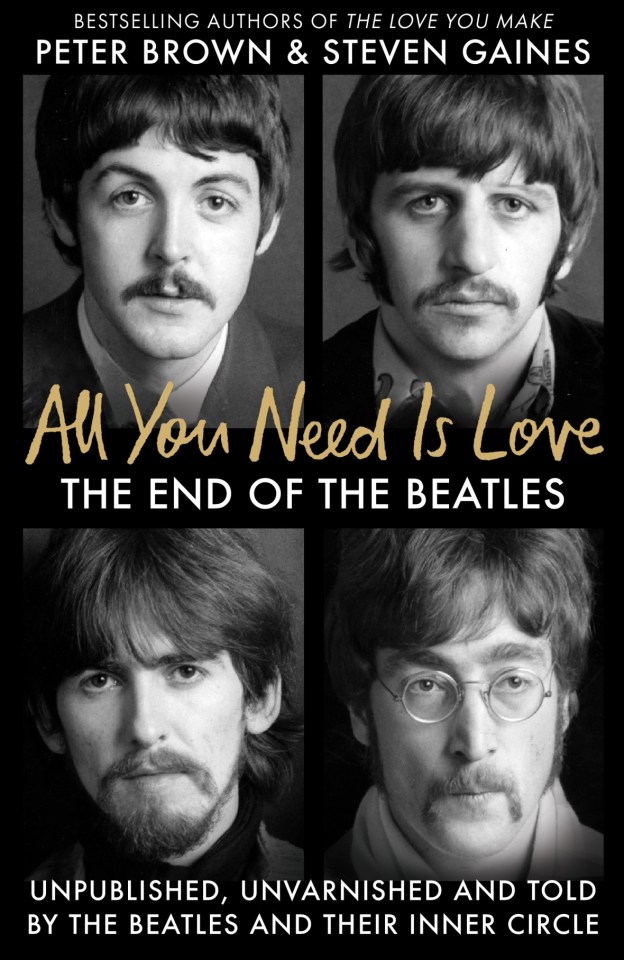
Ono, speaking in the spring of 1981, not long after Lennon was killed in December 1980, reveals that she didn’t sleep with Lennon for the first two years of their relationship — “John didn’t know how to make a move” — and claims that she was blamed by the Beatles camp, George Harrison in particular, for getting Lennon onto heroin in 1969. “Everything we did in those days, anything that was wrong, was my responsibility,” she tells Gaines. But everyone, from the Beatles’ notorious late-period manager Allen Klein to the Greek electronics wizard/hustler “Magic” Alex Mardas — “the Mordred of the Beatles’ Camelot” according to Brown — has their own version of events.
Going through the transcripts reminded Gaines of the long shadow cast by Lennon. “I didn’t realise how sensitive the other Beatles were to John’s opinion,” he says, speaking from his home in the Hamptons, Long Island. “Paul worried about what John would say [in the event Lennon died before being interviewed] and was still longing for his friendship. George said that John didn’t read his autobiography because it was called I, Me, Mine. Those interviews were done before John’s death and Paul’s heart was broken, even then. It wasn’t just the break-up of the Beatles. It was more personal than that.”
From around 1968, the transcripts reveal how the key Beatles duo started to come apart. McCartney’s enthusiasm was only getting stronger. But Lennon grew increasingly bored and disillusioned. “You have to remember that John wasn’t in love with his wife Cynthia,” Gaines says by way of explanation. “He wanted to get away from the life he was leading and that’s why he started to experiment with drugs, all the way up to heroin.”
Brown says Ono was, and probably still is, a distant, mysterious character, exactly the kind of person Lennon was looking for, having done the right thing and married the sensible, quiet Cynthia after she discovered she was pregnant with Julian in 1963. “John told me about meeting this woman, and how frustrated he was that he couldn’t get to know her better; he couldn’t take her to lunch because it would cause gossip. I gave him the key to my apartment so he and Yoko could be together in private and thought, naturally, they were going there to f***. When I went home that evening, the apartment was untouched. They did nothing more than sit on the sofa and talk. That’s what they wanted: to know each other.”
Regarding the long-held, unfair suggestion that Ono broke up the Beatles, Gaines says: “Yoko came along at the right moment to light the fuse, but the dynamite was already packed. They resented her, she was difficult to understand and had a deep effect on John, but they were getting more and more unhappy with each other and needed to have their own lives. As people in the interviews say again and again, [the split] was bound to happen.”
It was Brown who in May 1968 introduced McCartney to Linda Eastman, an ambitious young American photographer whom he knew from his business trips to New York, when she came to London on an assignment to shoot the Rolling Stones. “I was having dinner with Paul at the Bag O’ Nails [a club in Soho] when she turned up, so I introduced them and he was obviously taken with her,” Brown recalls. “The following Friday, May 19, we were holding a party for 12 top photographers at Brian Epstein’s house in London when she walked in. Paul says I didn’t introduce him to his wife … but I did.”
If the book has a villain it is Klein, the New York accountant who took over management of the Beatles and sacked everyone around them, much to McCartney’s horror. As Brown puts it: “He was a hideous person. He even looked like a crook: sloppy and fat, always wearing sneakers and sweatshirts. Everything he didn’t like was ‘for shit’.”
You wonder why Lennon fell for him. “The interviews suggest it is because Allen Klein offered Yoko a million dollars for her movie project,” Gaines says. “She was enticed and John would do anything Yoko said.”
“I asked Mick Jagger to come over and explain to the four Beatles who this Allen Klein was,” Brown remembers. “And John, in his wonderful way, had Klein turn up to the same meeting, which was deeply embarrassing. It made Mick very uncomfortable too.”
Epstein, the man who saw the Beatles’ potential in the first place, is a central figure in All You Need Is Love. It includes a transcript of a recording of him from 1966, not used for the original book. It was in the possession of Epstein’s attorney Nat Weiss, and seemingly made by Epstein to mark the end of the Beatles’ final tour. He claims not only that Lennon felt remorse for the infamous comment on the Beatles being bigger than Jesus — “What upset John more than anything else was that hundreds of people were hurt by that” — but that the Beatles would tour once more. “There’s no reason why they shouldn’t appear in public again,” Epstein claims. They never did, unless you count that rooftop performance on January 30, 1969.
“Brian was driving them around the north of England in his car for a year,” Brown remembers of the early days. “This Jewish guy from Liverpool, who was gay, was with these guys who had been hanging around in Hamburg, so both had interesting backgrounds. They understood each other.”
For Gaines, a self-described “gay Jewish boy from Brooklyn”, Epstein is at the heart of the story. “Brian never felt the love of a real relationship. Then he found the Beatles. Everyone thought it would be just another of his phases, but he had tremendous feelings for John, both sexual and intellectual, and that’s what really pushed him. If there was one thing that started the whole thing off, it was Brian’s love for John Lennon.”
That love affair was the contentious issue of the original book. In his interview, McCartney says of Lennon going to Spain with Epstein: “What was John doing, manipulating this manager of ours? Sucking up to him, going on holiday, becoming his special friend.” It wasn’t the suggestion of a homosexual relationship that was troubling McCartney, but the balance of power tilting in Lennon’s direction.
“Paul wanted to be in charge, and he deserved to be because he was the motor, the driving force,” Gaines says. “Paul felt that John would steal away the power. He felt threatened by John’s relationship with Brian.”
“Paul always wanted to be active,” Brown adds. “After Brian’s death the world had to be carried on. Who was going to do that? It wasn’t going to be John, George or Ringo. Brian was my best friend and I was very upset [at his death]. I had to go to the court to convince the magistrate that it wasn’t a suicide, and the following day Paul set up a meeting so we could discuss what we would do next. I said we’d do it next week, and he said, ‘No, it has to be now.’ He was right.”
How did Brown and Gaines feel about the horrified reaction to the book, not just from fans but the Beatles themselves? “The world has changed,” Gaines says, by way of answer. “Now, after all these years, hopefully people can see it as a truthful, loving and gentle book.” It has been decades since Brown spoke to the surviving Beatles and he has not contacted them about this new publication.
What the interviews really capture in eye-opening detail is the story of four young men who became a phenomenon, then had to deal with the fallout as the dream ended. On December 31, 1970, the day McCartney sued the other three to dissolve the partnership, Brown handed in his resignation as the Beatles’ day-to-day manager and officer of Apple Corps. Ringo Starr said to him: “You didn’t want to be a nursemaid any more, and half the time the babies wouldn’t listen to you anyway.” Brown moved to New York and became chief executive officer of the Robert Stigwood Organisation. But the Beatles never fully left him, and in the wake of Get Back — and the news that Sam Mendes is to direct four biopics, one on each Beatle — he decided he had one last job.
“We have finished our responsibilities,” Brown says with quiet authority. “It is the end of the story.”
EXTRACTS
‘It’s like bloody Julius Caesar, and I’m being stabbed in the back!’
Paul McCartney on the Beatles signing Allen Klein as manager against his wishes
[John Lennon] said, “I’m going with [Allen] Klein, what do you want to do about it?” and I kind of said, “I don’t think I will, that’s my roll.” Then George and Ringo said, “Yeah, we’ll go with John.” Which was their roll. But that was pretty much how it always ended up, the three of them wanted to do stuff, and I was always the fly in the ointment, I was always the one dragging his heels. John used to accuse me of stalling. In fact, there was one classic little meeting when we were recording Abbey Road. It was a Friday evening session, and I was sitting there, and I’d heard a rumour from Neil [Aspinall, road manager] or someone that there was something funny going around. So we got to the session, and Klein came in. To me, he was like a sort of demon that would always haunt my dreams. He got to me. Really, it was like I’d been dreaming of him as a dentist.
Anyway, so at this meeting, everyone said, “You’re going to stall for ever now, we know you, you don’t even want to do it on Monday.” And I said, “Well, so what? It’s not a big deal, it’s our prerogative and it could wait a few more days.” They said, “Oh no, typical of you, all that stalling and what. Got to do it now.” I said, “Well, I’m not going to. I demand at least the weekend. I’ll look at it, and on Monday. This is supposed to be a recording session, after all.” I dug me heels in, and they said, “Right, well, we’re going to vote it.” I said, “No, you’ll never get Ringo to.” I looked at Ringo, and he kind of gave me this sick look like, yeah, I’m going with them. Then I said, “Well, this is like bloody Julius Caesar, and I’m being stabbed in the back!”
‘You don’t like to see a chick in the middle of the team’
Paul McCartney on Yoko Ono
Give Yoko a lot . . . that was basically what John and Yoko wanted, recognition for Yoko. We found her sitting on our amps, and like a football team, an all-male thing, you really don’t like to see a chick in the middle of the team. It’s a disturbing thing, they think it throws them off the game or whatever it was, and these were the reasons that I thought, well, this is crazy, we’re gonna have Yoko in the group next.
Looking at it now, I feel a bit sorry for her because, if only I had been able to understand what the situation was and think, wait a minute, here’s a girl who’s not had enough attention. I can now not make this into a major crisis and just sort of say, “Sure, what harm is she doing on the amps?” I know they would have really loved me. You know, we didn’t like Yoko at first, and people did call her ugly and stuff, and that must be hard for someone who loves someone and is so passionately in love with them, but I still can’t — I’m still trying to see his point of view. What was the point of all that?
They’re very suspicious people [Lennon and Ono], and one of the things that hurt me out of the whole affair, was that we’d come all that way together, and out of either a fault in my character, or out of lack of understanding in their character, I’d still never managed to impress upon them that I wasn’t trying to screw them. I don’t think that I have to this day.
How Cynthia Lennon was driven to drink — at an ashram
Alexis ‘Magic Alex’ Mardas on Ono’s love letters to Lennon
Alexis Mardas was also known as Magic Alex, a name John bestowed on him because he was so taken with Alex’s inventions. Alex was handsome, charming, and a charlatan. (He sued The [New York] Times in Britain for calling him a charlatan and settled out of court. He’s dead now.)
[The Maharishi] was fooling around with several American girls. The Maharishi was making all of us eat vegetarian food, very poorly cooked, but he was eating chicken. No alcohol was allowed in the camp. I had to smuggle alcohol in because Cynthia wanted to drink. Cynthia was very depressed. John was receiving letters from Yoko Ono. Yoko was planning to win John. She was writing very poetic and very romantic letters. I remember those letters because John was coming to me with the letters, and Yoko was saying to John that “I’m a cloud in the sky, and, when you read this letter, turn your head and look in the sky, and if you see a small cloud, this is Yoko. Away from you but watching you.”
Poor Cynthia was prepared to do absolutely everything to win John. She was not even allowed to visit the house where John was staying. She was longing for a drink. Now, drinks, they were strictly prohibited in the ashram, but when it was discovered that Maharishi had a drink, I said, “Just a second, at least equal.”
‘He’s become so nasty’
George Harrison on reaching out to John Lennon
What’s wrong with John, he’s become so nasty. It sounds like he hasn’t moved an inch from where he was five or six years ago. I sent Ringo, John, and Paul all a copy of my book. I got a call from Paul. He called me up just to say how much he liked it. I shouldn’t have called it I Me Mine, because that title was a bit much. I sent a copy to John. I’m wondering if he’s actually received it, if he’s received it, he probably doesn’t like it or something offends him about it.
‘I told John that ... it was just a nice feeling’
Yoko Ono advising John Lennon how to take heroin
George said I put John on H, and it wasn’t true at all. I mean, John wouldn’t take anything unless he wanted to do it. When I went to Paris [before I met John], I just had a sniff of it and it was a beautiful feeling. Because the amount was small, I didn’t even get sick. It was just a nice feeling. So I told John that. When you take it properly — properly is not the right word — but when you really snort it, then you get sick right away if you’re not used to it. So I think maybe because I said it wasn’t a bad experience, maybe that had something to do with it, I don’t know. But I mean so, he kept saying, “Tell me how it was?” Why was he asking? That was sort of a preliminary because he wanted to take it, that’s why he was asking. And that’s how we did it. We never injected. Never.
‘It was time’
Ringo Starr on the end of the Beatles
Ringo Starr: Well, I’m pleased it happened because in so many ways, I’m glad it’s not going now. It was time. Things last only so long.
Steven Gaines: The Rolling Stones are [still] going.
Ringo Starr: Yeah, but they’re old men.
(source)
143 notes
·
View notes
Text
have you considered that like. Maybe. Perhaps. It’s the color of the sun cut flat?? It’s covering this crossroads I’m standing at? Or maybe it’s like. The weather or something. Idk. But mama. You’ve been on my mind!! Just had to let you know.
45 notes
·
View notes
Text
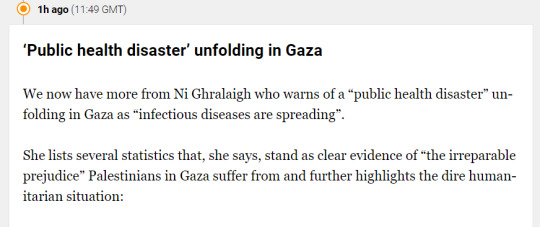

from al jazeera's live coverage of the first ICJ hearing
4K notes
·
View notes
Text
“[All These Years] Tune In set a lot of things right about the early years, it really did set down what had occurred yet I still read to this day vast amounts of stuff that are patently wrong about those years… So therefore I think when Volumes 2 and 3 come out the same will happen, people who want to think that John and Paul were lovers will still think it and they’re probably gonna think that I didn’t put it in because I didn’t want to put it in but no… If I find that they’re lovers I shall put it in but I can tell you that I’m not gonna find that they were lovers, because they were not.”
Mark Lewisohn, Fans On The Run Podcast, 2022
#ive only just seen this now and LMAO#i really wanna read tune in soon so i can try and figure out what goes on in this man's head for myself as i read#this quote of his is so funny thats such a thing to say#very professional historian of him#to have made up his mind about the matter#lewisohn#beatles#tune in
80 notes
·
View notes
Text
I think we need to get more comfortable with the idea that sometimes shitty, racist, homophobic, bigoted people are still incredibly talented.
I feel like every time I see a post addressing someone’s shitty behavior the post also takes the time to mention that they’re not even good at [x] anyway. And that’s just not always true? Equating being good at a skill as being morally good is just not necessary. Someone can be a fantastic writer, can have a beautiful singing voice, can create breathtaking artwork, and still be a horrible person.
I know part of this is probably just the instinct to dislike everything about a person when you dislike them, but I also think this mindset leads to people defending creatives way past where they should, because if bad people create bad art, then if this person creates art that I like and resonates with me, then they can’t be a bad person!
And you know. That’s just not true. Those two things are simply completely unconnected and I think it’d be healthier if we all started disconnecting them in our heads.
34K notes
·
View notes
Text
the amount of times 39/40 year old john spent going Im Just An Old Calm Guy Now :) Who Would Ever Want To Be Twenty Again? This Is Good :) I'm Having A Good Time should be ILLEGAL
#me and my friends were having a breakdown over this in the gc just a few minutes ago#its Feeling Sad Over John Lennon's Death friday
17 notes
·
View notes
Text
shoutout to those already struggling within the first days of the new year. this does NOT dictate on how your year is going to be. stuff you're going through may not disappear overnight. you'll get there and what's important is that you take it easy
10K notes
·
View notes
Text

'YEAH I WAS LYING (LAUGHS)' <- THE STORY OF THE BEATLES
423 notes
·
View notes
Text
so my friends and i added understanding lennon/mccartney to letterboxd
#the poster is up at tmdb it should be on letterboxd at any minute#j&p#mclennon#understanding lennon/mccartney#ulm#beatles
44 notes
·
View notes
Text
what do they put in large rocks that make u just want to. stand on it.
65K notes
·
View notes
Photo

[text ID: Let me tell you a story about war. A man says to another man Can I tell you something? The other man says No. A man says to another man There is something I have to tell you. No, says the other man. No, you don’t. /end ID]
3K notes
·
View notes
